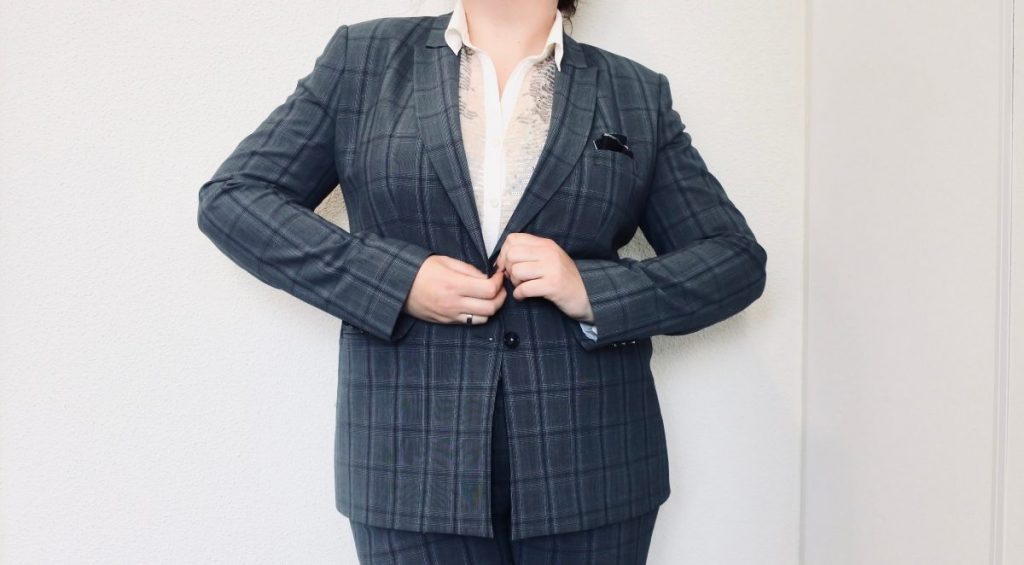Want to read in Dutch? Click here.
Several studies have shown that the clothes you wear partly determine how others perceive you. Most of us will all agree that the clothes we wear affect our confidence levels. But what about happiness? Can work clothes make you happier at work?

Research
Thrive Global, in collaboration with The Business of Fashion, conducted an investigation on this topic. They surveyed 2,700 people from 20 different countries, the majority of whom were women. It turns out that people who are not happy at work, 55% are also not satisfied with their work clothes. Happiness in this survey was measured by answering the question of whether people felt that work clothes suit an individual’s personality.
55% is quite a high percentage, especially when you compare this with the group of happy employees. In the group of people who reported being happy at work, only 29% are not satisfied with their work clothes.
Footnote
The above results were based on people working in different sectors, but all office-based. This is important to know if we are to properly access the results. When people are not happy with their work clothes, and, it is the employer who is dictating what they must wear, the choice is out of their control. But the people in this survey were free to choose what they wear. So why not put a bit more energy into picking clothes that make you feel good?
Is it that simple?
When you look at the question, whether work clothes affect our level of happiness at work, you would think the connection is pretty straightforward. Your clothes can directly determine how happy you feel at work. So, put some effort into looking good, and you will feel better. But of course, it is not that simple.
Instead of making the link from the outside (the appearance) to the inside (how we feel), it makes more sense to do it the other way around. When we don’t feel well we generally have less energy, so we have to choose where we focus our energy. Chances are when you are low on energy you do not have an extra few minutes to spend standing in front of your wardrobe. You probably prefer spending an extra few minutes in bed. People such as Mark Zuckerberg make a conscious decision of how they use their energy. He stated in an interview that he chooses to wear the same clothes every day, so he does not waste his energy on deciding what to wear.
Function and Zeitgeist
Mark Zuckerberg, being a company director and entrepreneur, can decide for himself what he wears. This is not the case for everyone. In general, the higher the function you have, the more likely it is that you are expected to dress in a certain way. And so you have less freedom to choose. Since most respondents were middle or senior management, I can imagine that this also plays a role on their level of happiness in the workplace. When you are expected to dress in a certain way, you are more likely to feel that you are not quite meeting the standards. Or that the clothes you are expected to wear do not suit your personality. This can be a factor in feeling less happy at work.
What is expected in terms of work clothes is more complicated nowadays. 83% of the respondents said that the dress code in their organization has relaxed in recent years. While 62% believe in the well-known statement that you should dress for the position you want and not the one you are in. A confusing statement in a time when dress codes are relaxing, and there are no clear guidelines.
Clothes have influence
On the other hand, I will not deny that clothing, even when there is no clear guideline, can affect your level of happiness. We all know what it is like to wear something beautiful, it makes us feel great. You get a compliment and, it gives you an extra boost! But this is short-lived. Anyone who is not happy at work will still not experience long term happiness just because the dress code changes. Permanent happiness is definitely an inside job.
Greetings,
Aileen
